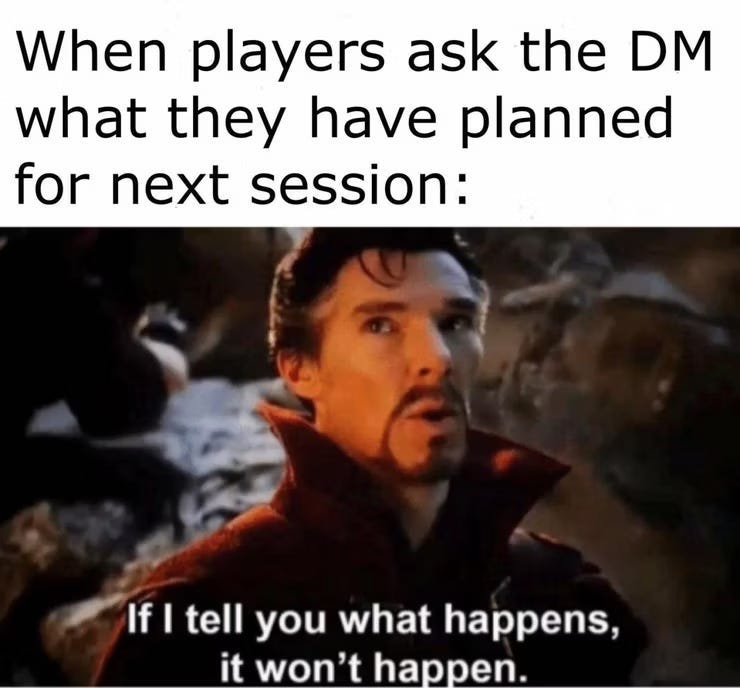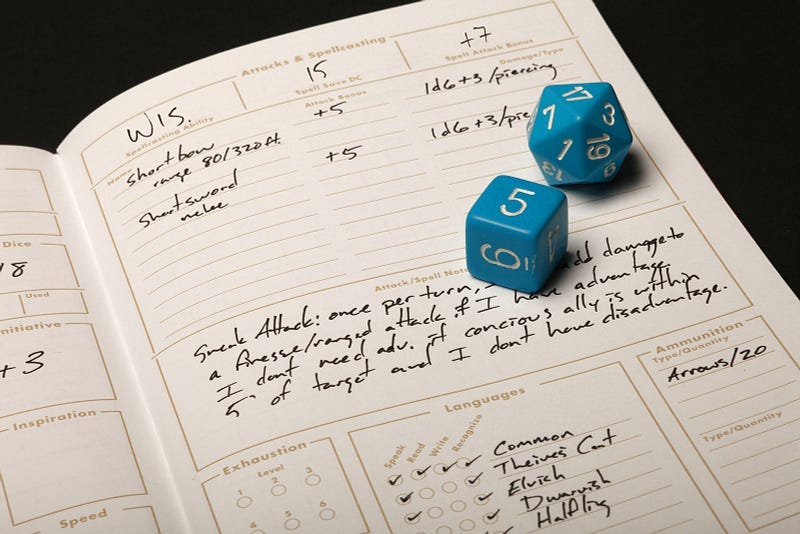Want To Practice Your Management Skills? Try Being a Dungeon Master
You’ll never know everything about management, and that’s alright!
You’ll never know everything about management, and that’s alright!
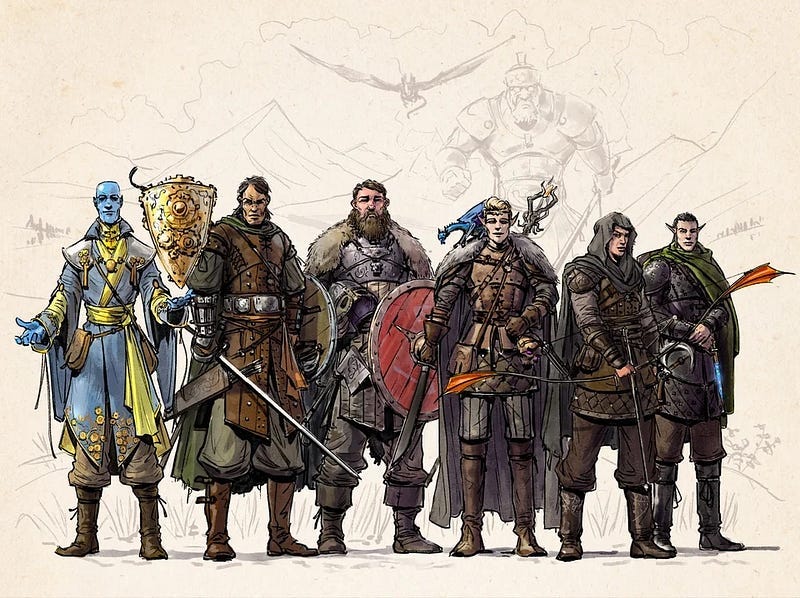
Earlier this winter, a group of friends and I were chatting about Dungeons & Dragons (5th Edition). A few had played previously, and some were brand new, but all were interested in getting a campaign together.
We started with a one-shot, a self-contained adventure that takes 3–4 hours, to test the waters. I played the role of the Dungeon Master and was tasked with putting the adventure together (I’m now likely the Forever DM).
We’re now four sessions in (two one-shots, and two sessions into a full campaign), and I began noticing similarities between DM’ing and being a manager. That’s when it hit me that this game was a strange bridge between my day job and my high-fantasy RPG brain.
At the end of the day, I was managing a whole game world, and the NPCs within, while letting three unpredictable adventurers run wild, keeping them within the guardrails of the rules, and moving some semblance of a story forward. These were all ways to practice my role as a manager and director, something that is tough to come by in the business world.
Forever DMs might roll their eyes at this article saying, “you’re four sessions in, you don’t know enough of the pain or suffering to write this.” Totally possible, but I imagine there will be many parts to this post in the future, so here are a few high-level learnings.
Preparation
At the beginning of your Dungeon Mastering days, there are a lot of things to know. Who are the PCs (player characters at the table)? What are they trying to do? Why are they in the world? What’s the point of your adventure? Can you throw a gnome 15 feet into an open attack while being attacked by Stirges with an Athletics check that nets a 6?
Preparing for our first game was daunting, similar to preparing for my first team as a manager. I was out of my element and reached for any book or video that would give me some sense of how others had done it in the past.
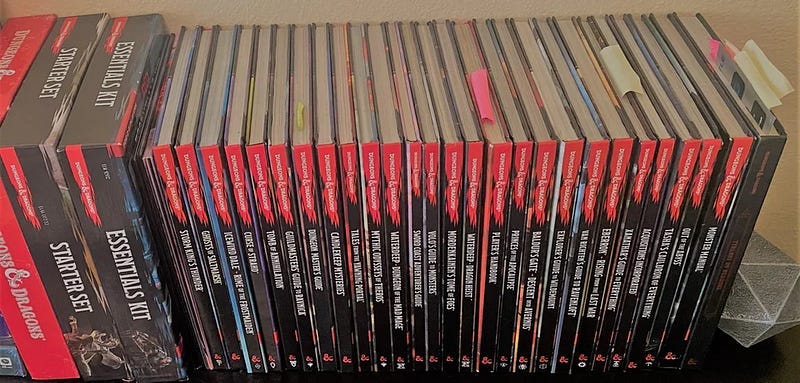
Thankfully, just like management, there are folks that are looked up to as great DMs. I dug deep on Dungeon Dudes, XP to Level 3, and Sly Flourish, while also watching clips of the “non-comparables”, like Matt Mercer (Critical Role) and Brennan Lee Mulligan (Dimension 20), to see what the highest level looked like.
The “non-comparables” are folks that have high-quality setups, voice actor friends, and set insane standards that can ne’er be reached by we lowly humans.
Each manager and DM will have their own style for preparation, but for me, consuming heaps of info from various sources gives me a sense of how I may or may not want to manage my team and game. Find what works best for you, and revisit over time to see how you can continue to improve. This could be for 1:1s, projects, setting strategies, OKRs, dungeon crawls, etc.
After reading and watching, I put what I’d learned into action, wrote notes for our session (I went with A Wild Sheep Chase, to have a starting point), and prepared the world. I knew what I wanted them to achieve. While I couldn’t tell them exactly what would happen, I could lead them there. Or so I thought.
You Can’t Predict Everything
I knew all of the player characters' names, classes, races, and stat blocks by heart, but how they would play that character was a mystery. Just like looking at a resume, you may think you know the skills of a person, but how they leverage those skills is murky until you see them in action.
My characters immediately went to the tavern (surprise!) and wanted to talk to every NPC to see if there was any adventuring to be had. I had not predicted this. I had a finely pointed adventure hook to get them started, but they’d blown right past it.
I stumbled for a few minutes, trying to come up with names, occupations, and voices on the fly, finally realizing I could have each NPC talk about the strange wizard in the tower and folks disappearing. After all, they lived in the world too and each was affected differently.
You can’t predict everything in the game world, but if you set up structures and fallbacks, you can get your characters back on target. I also learned that it’s completely okay to let them wander off the path, but I needed to know juuust enough about the world, its dangers, and what they may encounter.
Just like in management, a project or career path may not have a clear opening hook, but working together with your direct reports, you can find that solid starting point to get them started on their journey. It will not be without its bumps in the road, but knowing their skillset can be a great first step in getting there.
Understanding Skills and How To Highlight Them
Every character has ability points, modifiers, and proficiencies for their character. All of these are used when rolling the dice to determine an outcome.
Example: I want to steal this set of keys from the sleeping guard. (rolls sleight of hand (DEX check), 17 on the d20 (20-sided-die) + 4 from proficiency and modifiers. The stealing of the keys succeeds!
Four sessions in, I know how to present opportunities that will get the Rogue to say “Oh! This is a perfect opportunity to leverage my sneakiness” or the Half-orc Paladin and his excitement when the enemy is skeletons who take double damage from his bludgeoning maul.
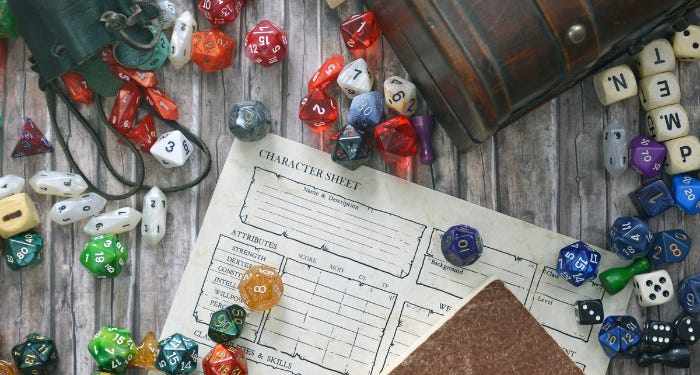
Each individual has their own expertise, and it's my job to present them with those chances to succeed or show off that expertise. Not only does it keep them engaged, but it also makes them feel good about their role in the world and within the party.
This translates almost exactly to managing teams. When you’re setting up projects and goals, it can feel rewarding for the individual if you match them on work that perfectly fits their skillset. There will be times when you need to make them uncomfortable, or they want to stretch into a non-proficient skill, but have those high-likelihood-of-success moments in your back pocket for if they’re feeling defeated.
When I’m creating session notes, I now try and think about how I can match up some of the encounters to the skillsets of the party. There’s nothing better than watching the Druid save the party from being arrested by using Minor Illusion to cause a bigger commotion that the guards need to tend to. Excitement, engagement, and a deeper investment are the result.
You’ll Never Know Everything
Do you know how many books there are for Dungeons & Dragons? Outside of the Player’s Handbook, there’s the Dungeon Master’s Guide, Monster Manual, Xanathar’s Guide to Everything, Volo’s Guide to Monsters, and Mordenkainen’s Tome of Foes to name a few. That’s not even including the countless modules, adventures, and community-created supplemental resources. Needless to say, it’s a lot of information. I will never know all of it, and that’s okay.
The same goes for management. There are a million and one books out there on how to manage and lead teams, but you can never read them all. You’ll never know everything about management, and that’s alright!
Final Thoughts
If you’re looking to practice your craft as a manager, taking over Dungeon Master responsibilities gives you that opportunity. You must know your people (players), have a goal or destination in mind and do your best to prepare to get them there.
You also have to know that things may go sideways from time to time. That’s where you as a manager (or DM) need to be flexible, address the problems in front of you, and get the team (or party) back on track.
There will be more lessons I’m sure, but this is enough to think about for this time session.


